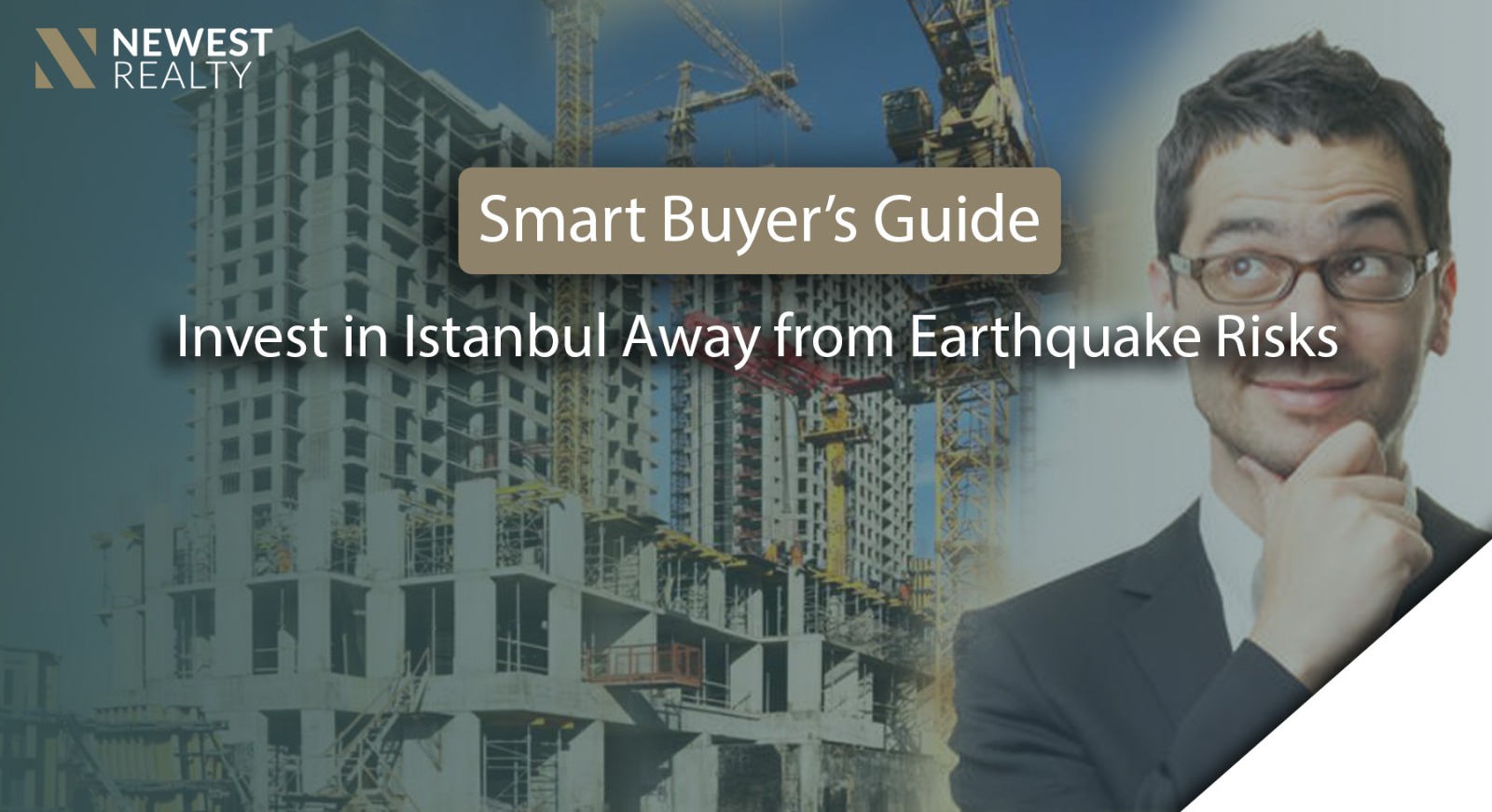Smart Buyer’s Guide: Where to Invest in Istanbul Away from Earthquake Risks?
What Real Estate Investors Need to Know Before Making a Buying or Selling Decision
Istanbul is one of Turkey’s most dynamic cities in terms of population growth and real estate investment. However, it is also located in a seismically active zone, making it essential for investors and homeowners to understand geological risks and construction standards—especially for those planning to buy property or evaluate their current investments.
Is the Next Earthquake in Istanbul Certain?
Scientifically speaking: Yes—but the timing is unknown.
According to seismological studies in Turkey, Istanbul lies near the North Anatolian Fault, one of the most dangerous fault lines in the world. Based on geological history, major earthquakes strike the region approximately every 250–300 years—the last one occurred in 1766.
Bottom line: The earthquake is scientifically inevitable, but predicting the exact timing is impossible. The focus should be on urban and structural preparedness, not on when the quake will hit.
Are All Areas of Istanbul at Equal Risk?
No. Istanbul is not a uniform block when it comes to seismic risk. There's significant variation across neighborhoods based on geological structure, soil type, and building code compliance. Here's a general division:
Relatively Safe Areas (Solid Bedrock + Modern Infrastructure):
- Başakşehir
- Bahçeşehir
- Kayaşehir
- Arnavutköy
- Istanbul Financial Center (Ataşehir)
- Beykoz
- Üsküdar
- Sarıyer
- Çekmeköy
High-Risk Areas (Sandy Soil / Old Construction):
- Küçükçekmece
- Büyükçekmece
- Zeytinburnu
- Avcılar
- Beylikdüzü
- Fatih
- Kadıköy
- Kartal
- Esenyurt
- Bağcılar
- Bahçelievler
Are All Buildings Prone to Collapse?
Not necessarily. The major difference isn't just location, but also construction quality and year built. Older buildings—especially those constructed before the year 2000—were built under outdated seismic codes.
In contrast, newer constructions (especially post-2018) are subject to strict seismic codes, ensuring high earthquake resistance through:
- Reinforced concrete quality
- Shear walls and steel frameworks
- Deep foundation systems
- Soil quality testing
- Foundation isolation technologies
So, not all buildings face the same level of risk, even within the same neighborhood.
What Is the Future of Real Estate in Istanbul Amid Earthquake Concerns?
Rather than panic, the Turkish real estate market is evolving with smarter demand trends:
- Rising demand for earthquake-resistant modern housing complexes
- Gradual shift away from old, unregulated structures
- Increased interest in safer, newer zones—even if they're far from the city center
- Higher property values for buildings compliant with seismic regulations
Any modern, legal building on solid ground is likely to retain or increase in value.
Should I Avoid Real Estate Investment in Istanbul Altogether?
Absolutely not.
On the contrary, Turkey—especially Istanbul—is undergoing the largest urban transformation in its history. Thousands of unsafe buildings are being demolished and replaced with modern complexes meeting high engineering standards.
Success in today’s real estate market depends not only on location but on understanding:
- Soil reports
- Building structure
- Earthquake compliance certificates
Summary: How to Protect Your Investment from Earthquake Risks
- Request the Geotechnical Soil Report (Zemin Etüdü) before purchasing.
- Ensure compliance with the post-2018 seismic building code.
- Avoid properties on loose or sandy soil, especially near the coast.
- Consult a structural engineer or legal advisor before finalizing any deal.
- Look for projects under Istanbul's urban transformation initiative.
Final Thought:
An earthquake doesn’t spell the end of the market—it’s a filter that separates unsafe from safe investments.
The smart investor doesn’t retreat from the market. Instead, they know where to invest and how to safeguard their capital.


